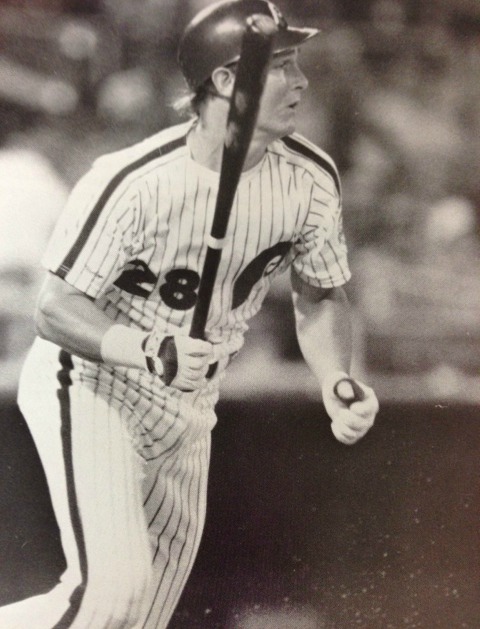One Cardinal’s Clipped Wings and Dashed Dreams
Instead of being a continuation of a dream, the 1988 season turned into a nightmare.
By Greg Weeks
The following article originally appeared in the May/June, 1990 issue of Sharing the Victory, then the print publication of the Fellowship of Christian Athletes.
Ever gotten cut from the varsity team…left off the all-star squad…or denied an athletic scholarship? If so, you have something in common with Tom Herr, second baseman for the Philadelphia Phillies: disappointment.
It seems strange to call this 33-year-old athlete a Phillie. Most of his baseball career was spent as a St. Louis Cardinal. And, on the Cardinals he pinned most of his dreams.
In 1975, as a fresh graduate of Hempfield High School in Landisville, Penn., Tom signed his first professional contract. The St. Louis club nurtured him for six years, honing his skills and grooming him for the big leagues. Those years in the minors were filled with “shabby fields, long bus rides and showers that didn’t work.” It wasn’t a sacrifice, though. Tome was a Cardinal.
In 1980, Tom finally broke into the majors. His enthusiasm, hard work and considerable skill seemed to promise the position of the Cardinal second baseman for years to come. In fact, he played 1,029 games for his beloved team. During that span, he contributed heavily to the club’s three National League pennants (1982, 1985, 1987) and one World Championship (1982). His banner year came in 1985, when he batted .302, drove in 110 runs and was voted to the National League All-Star team.
And then it happened.
Early in the 1988 campaign, manager Whitey Herzog called Tom into his office. When he walked into the room, Tom instantly sensed something was wrong. Seated beside Whitey was Dal Maxvill, the Cards’ general manager; that usually spelled trouble. Tom’s fears were soon confirmed. He was to be traded on April 22 to the Minnesota Twins.
The news hit Tom with the force of a Mike Tyson uppercut.
“I was raised in the Cardinal organization, and they taught me how to play ball. I had set a goal of remaining a Cardinal for my entire career. Now that goal was taken away from me. I felt rejected, felt I wasn’t as good as I thought I was.”
Instead of being a continuation of a dream, the 1988 season turned into a nightmare. Although his statistics—including a .263 batting average—weren’t bad, injuries and the Minnesota fans’ cool reception plagued him.
He was traded to the Phils in the offseason.
The bitter memory of 1988 was hard to erase. “Instead of looking at the positive side of the [first] trade—the Minnesota side—I was looking back into the past. But, I learned some valuable lessons…”
One of those lessons included a sharpening of his perspective. Tom had been a strong Christian since his conversion experience in a Pro Athletes Outreach meeting in 1977. In subsequent years, Tom deepened his faith through disciplined Bible study, Baseball Chapel meetings and attending church during the off-season.
Consequently, Tom leaned heavily upon his faith in the wake of the trade. His self-worth had been wrapped up in his identity as a Cardinal…but gradually he realized he was acceptable because of what God did through Christ and for no other reason. “My faith got me through,” Tom admitted.
Tom also learned God provides fellowship, regardless of where he lived. “There were Christians in Minnesota who quickly ministered to me. There were also Christians on the Twins (especially Greg Gagne and Gary Gaetti) who helped me out. Fellowship is so important in our daily walk.”
Perhaps Tom’s trade to the Phillies was a veiled blessing. Philadelphia is close to Lancaster, his hometown and off-season residence. That means Tom can more easily spend time with his wife Kim and their two sons Aaron and Jordan.
Plus, Tom enjoys being a Phillie. In 1989 he continued his customary flawless glove (.990) and solid bat (.287). He anticipates giving at least three or four productive years to the City of Brotherly Love.
“Just because you don’t attain something doesn’t mean you’re a failure,” Tom said. “If you put forth the effort…you’re not going to be a failure in God’s eyes. All he expects you to do is to give it your best and not really worry about the results.”
-FCA-


Great common sense here. Wish I’d thought of that.